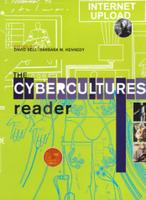Following on from Lee's thoughts on exactly who constitutes a 'client', we are not doing ourselves (as b-schools that is) any favours in claiming that we can indeed summarise our client's needs. The danger of such a claim is that it reinforces a doctor/patient mindset that implies that we (b-schools) know what is good for you (clients). I'm prepared to run the risk of going off on an academic tangent with this as I believe our uncritical acceptance of classical pedagogical methods is part of the problem we’re encountering. Whilst the 'doctor/patient' metaphor grossly oversimplifies the wealth of intentions at play in our educative endeavours, I'd hope it may serve to stimulate reflection of how we (as individuals and as representatives of our institutions) frame our practices.
That said, I perceive my clients needs for the provision of executive education from Cranfield as the following:
Highly customised, i.e. not one-size-fits-all approach. Clients want an active part in the programme design process, via a needs analysis consisting of consultancy, focus groups and interviews
Convenience – or reduced opportunity costs of managers out of the workplace for long periods. This often relates to locating programmes either in or near the workplace or at a geographical distance from Cranfield classrooms.
Relevant to their particular managerial & business contexts - even for open enrolment programmes, consumers want exposure to content that is targeted at their specific work contexts. Corporate consumers want us to understand the strategic contexts of their businesses so that we can tailor content to suit their learning requirements.
For programmes aimed at the corporate, clients want a systemic intervention – a programme that not only builds the efficacy of individual delegates but which has a wider beneficial impact on the entire organisation.
The latest thinking on all aspects of management – to support the programme content with evidence-based research. The utilisation of that new knowledge then allows clients to plan strategies and operations that delivers not just performance improvement but competitive advantage
The intervention should directly contribute to performance improvements for the individual delegates and/or client organisation that are measurable, be that via classical evaluation methods or via the active management of an embedded suite of process improvement or performance metrics
Where the intervention is aimed at a corporate, the chosen developmental tactics (exec.ed) employed should align with, bolster or supplant existing corporate management development policy; namely, develop existing & emergent competencies inside the client organisation; align with existing and/or emergent management career structures; and provide feedback to the corporate management development policy stakeholders on the efficacy of that policy
For open enrolment executive education delegates want to increase their managerial capability via the assimilation of new knowledge, stimulating learning processes, and to learn alongside similarly effective practitioners with whom they can network
A clearly planned process that translates knowledge acquired in the classroom into action in the workplace
The integration of innovative learning methods onto the programmed development intervention, e.g. coaching, action learning sets and project groups, e-learning, blogs, networking events, guest speakers
A trusted and longer term relationship with a executive education provider that can deliver all of the above


